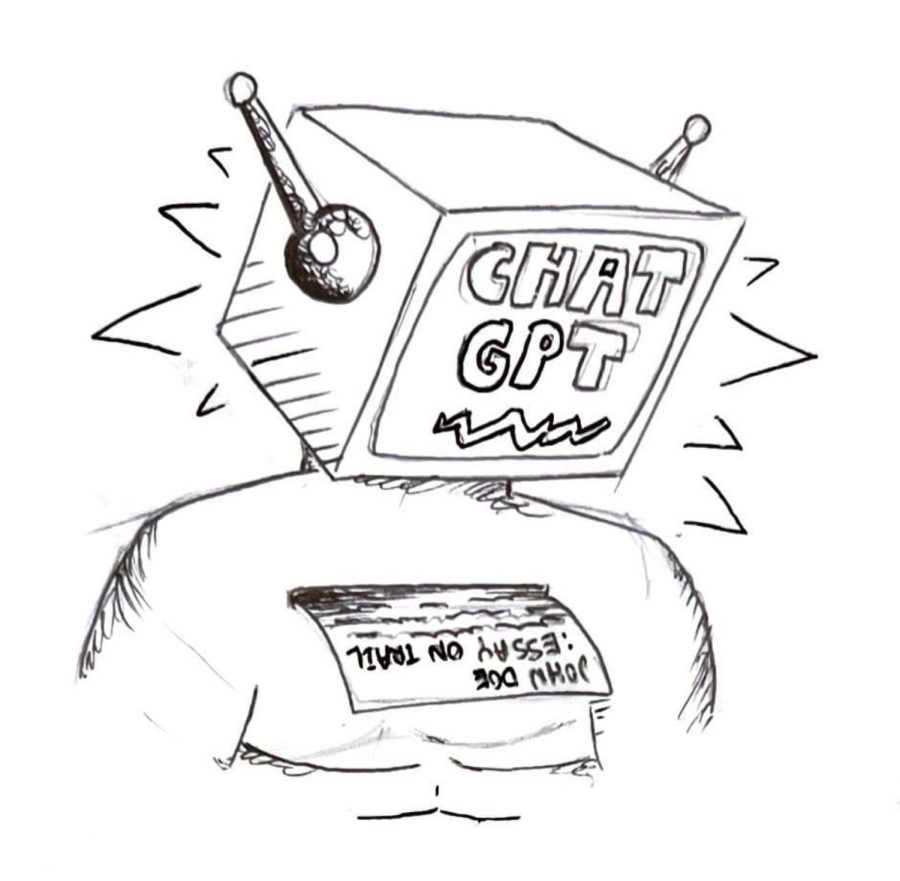Is AI a threat to human progress — or is it simply human progress?
Elon Musk and other tech leaders are calling for industry leaders to hit pause on AI developments and concentrate on AI safety for the next six months. What do you think about the future of AI or its present uses or abuses?
April 3, 2023
How much of humanity uses artificial intelligence (AI) as a crutch for their daily lives?
Throughout this modern age, humans have used technology to improve their livelihoods. People use AI in the physical sense: flipping switches, playing music, and delivering packages on time. However, it is more ingrained in society than most think. Social media platforms, like Instagram and Facebook, and consumer buying websites, like Amazon, use AI to pick up on people’s daily lives to show them products and images that appeal to them. New AI technology, such as ChaptGPT and GPT-4, have come to market, raising concerns that AI is becoming too powerful.
While AI does pose benefits in assisting people, AI technology should not be blindly used without procedure and caution.
ChatGPT uses the internet to compose different images, prompts, and calculations. Due to its wide variety of sources, ChatGPT could be taking ideas from others and recreating them differently, raising issues of intellectual property theft.
While many schools have tried to stop the usage of ChatGPT, many students could use it to write scholarship letters, internship papers, and college applications, posing problems further along the road of life.
Using ChatGPT will undermine a student’s ability to write because they rely so heavily on an AI to write for them. Many believe that students possess little extra time; however, many admit to “fooling around” when doing homework instead of trying to better themselves. As students graduate, they will learn little if their writing skills are not practiced and perfected, which could pose problems for employers or jobs that require report-taking.
It also undermines students that put effort into writing and drawing college submissions, perhaps even cheating someone out of joining a college.
ChatGPT, as mentioned earlier, can create artwork. While this could be good for companies unwilling to spend a lot of money, it can take away jobs from artists that depend on making artwork for companies. Many fear that traditional art values will be discredited in most of society, as most overlook the difficulty of creating a masterpiece.
Yes, this new AI solves many tedious problems of today. Companies can spend less time and money on developing artwork, artists can research prompts and ideas faster, people struggling to cook can find recipes. For writers and programmers, it can be a powerful brainstorming or coding tool.
But can it be completely trusted? As society has accepted, daily lives are constantly listened to by AI, providing information to fuel them. However, trusting a new AI can pose problems. As many digital engineers know, no code is perfect the first time, meaning new AI like ChatGPT will continuously evolve.
With AI being so new and flawed, can it be trusted to not share personal information? Many essays have been written with a bias under the instruction to not, showing that AI still poses issues that need to be solved. Artwork made by ChatGPT has often seen little similarity to the prompt and little to no expression. Why trust AI to make something better for humans when humans do better?
Humanity must impose rules and limits on when it should be used. For students, it should be allowed to be used until a level of understanding has been reached for how to better their writing skills. Works should be labeled when AI was used.
People take advantage of the world of AI, but if we do not better ourselves, what will our world be lifted with? Would we allow those who excel in school to lead us, or follow those that live based on a robot’s bias?
